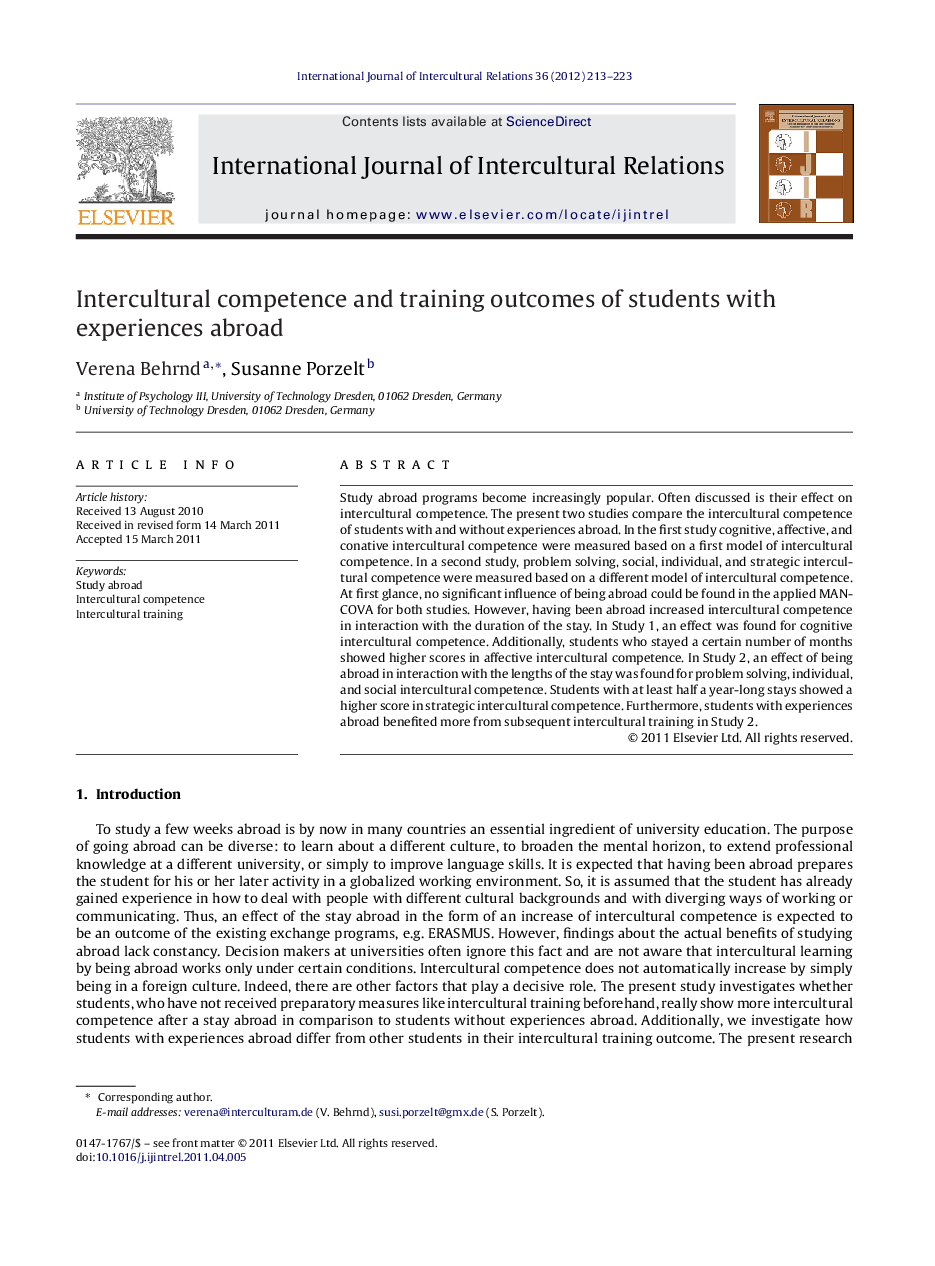| Article ID | Journal | Published Year | Pages | File Type |
|---|---|---|---|---|
| 947385 | International Journal of Intercultural Relations | 2012 | 11 Pages |
Study abroad programs become increasingly popular. Often discussed is their effect on intercultural competence. The present two studies compare the intercultural competence of students with and without experiences abroad. In the first study cognitive, affective, and conative intercultural competence were measured based on a first model of intercultural competence. In a second study, problem solving, social, individual, and strategic intercultural competence were measured based on a different model of intercultural competence. At first glance, no significant influence of being abroad could be found in the applied MANCOVA for both studies. However, having been abroad increased intercultural competence in interaction with the duration of the stay. In Study 1, an effect was found for cognitive intercultural competence. Additionally, students who stayed a certain number of months showed higher scores in affective intercultural competence. In Study 2, an effect of being abroad in interaction with the lengths of the stay was found for problem solving, individual, and social intercultural competence. Students with at least half a year-long stays showed a higher score in strategic intercultural competence. Furthermore, students with experiences abroad benefited more from subsequent intercultural training in Study 2.
► Comparison of intercultural competence of students with or without experiences abroad. ► Having been abroad increased competence in interaction with duration of stay. ► Students experienced abroad benefited more from subsequent intercultural training.
